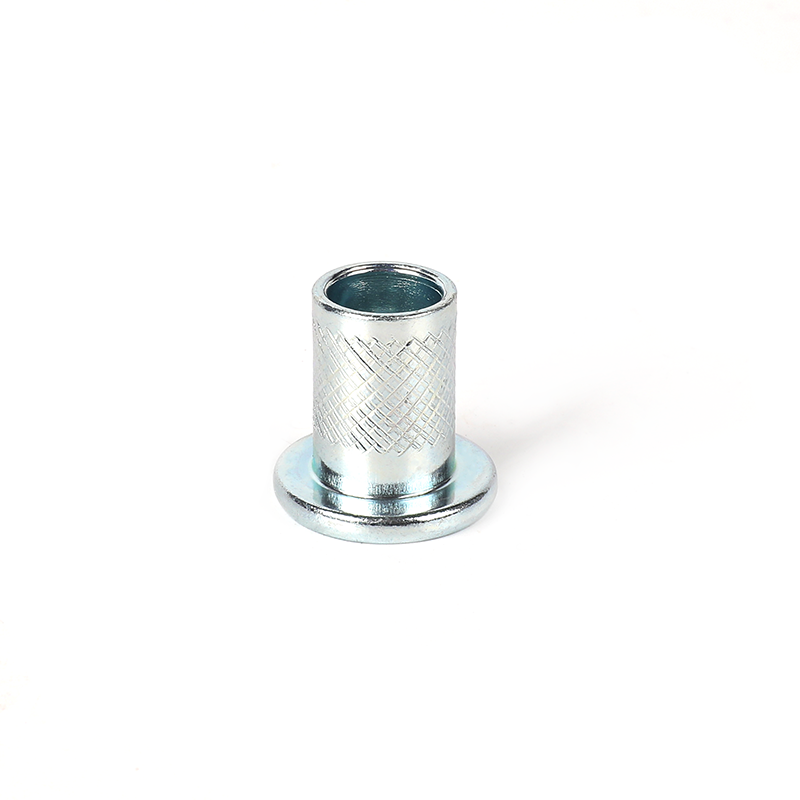Room 102, Building 13, Area A, Wanyang Zhongchuang Park, Ganyao Town, Jiashan County, Zhejiang China.

In terms of different materials, the surface treatment and anti-corrosion effects of Oil Pipe Screws are significantly different. Common surface treatment methods include galvanizing, phosphating, coating (such as polyurethane coating), electroplating, spraying, etc. The corrosion resistance of different materials depends on their composition, surface treatment technology and use environment.
Galvanizing is a common anti-corrosion treatment, especially on carbon steel. By covering the screw surface with a layer of zinc, you can effectively improve its corrosion resistance, especially in humid or salty environments. Hot-dip galvanizing generally has a stronger anti-corrosion effect than electro-galvanizing. Phosphating increases the corrosion resistance of metal surfaces and helps improve screw adhesion to other coatings, such as paint or lubricants. The use of polyurethane coating or epoxy coating can improve the corrosion resistance of tubing screws and is suitable for harsh working environments.
Steel itself is susceptible to corrosion, especially when exposed to moisture or chemicals. Surface treatment can significantly improve the corrosion resistance of steel, but regular inspections are still required for long-term use.
Stainless steel screws are often mechanically polished or electrolytically polished to create a smooth surface, thereby improving corrosion resistance, especially better corrosion resistance to chlorides (such as seawater). The surface hardness and corrosion resistance are enhanced by introducing nitrogen at high temperatures, making it suitable for applications requiring extremely high wear resistance and corrosion resistance.
Stainless steel itself has natural anti-corrosion capabilities, especially high-alloy stainless steel (such as type 316), which has excellent corrosion resistance to salt water and acidic environments. Therefore, in many industrial applications, stainless steel is the material of choice for oil pipe screws with high corrosion protection requirements.
Copper alloys naturally form an oxide layer (such as patina) when exposed to air, which can effectively prevent further corrosion. Sometimes copper screws are coated with a protective film to enhance their corrosion resistance. Copper and copper alloy materials themselves have strong corrosion resistance, especially in seawater or salty environments. But in some acidic environments, copper may be corroded.

Anodizing is a commonly used surface treatment method for aluminum materials. It forms a strong aluminum oxide film on the aluminum surface through electrochemical reaction, which significantly improves corrosion resistance, especially in humid or acidic environments. Aluminum alloys can enhance corrosion resistance through coating (such as spraying or electrostatic spraying), especially the protective film that can resist external oxidation. Aluminum has good corrosion resistance, but compared to stainless steel, it is less resistant to corrosion in some extreme environments (such as high-salinity environments). However, anodizing and coating can significantly improve its corrosion resistance.
Titanium is extremely resistant to corrosion, especially in seawater or high temperature environments. Titanium itself will naturally form a passivating oxide film in the air, giving it excellent corrosion resistance. To enhance this performance, surface passivation or anodization is sometimes performed. Titanium has extremely high corrosion resistance and is especially suitable for use in extreme environments, such as chemical reaction vessels, marine environments, etc.
For the specific application of tubing screws, the choice of material should be determined based on the working environment, cost and durability requirements. If the work environment involves highly corrosive media or high salt environments, stainless steel and titanium alloys may be the best choice

Fix anchorbolts include bolts, washers, nuts and 4PCS cylindrical shields. By tightening the bolts, the shields tubes expand and the components can be...
See Details
Flange bolts are specially used to tightly connect pipes and components with flanges. We produce flange bolts are solid t and durablethat, compling wi...
See Details
The Grade 8.8 black oxide full-thread hexagon socket bolts have an internal hex design and needs to be used with a wrench with a hex head. Its full th...
See Details
Grade 8.8 black oxide full-thread hexagon bolts is a very common fastener and requires a wrench or hex wrench to tighten it. Our hex head bolt meet th...
See Details
This product is made of high-quality carbon steel and undergoes a rigorous heat treatment process. It has high strength, good elasticity and toughness...
See Details
This 304 stainless steel plain full-thread hexagon bolt is a kind of fasteners made of high-quality stainless steel material and has corrosion resista...
See Details
This plain round flat head weld shoulder bolt is a fastener suitable for a variety of welding applications. Its flat head and round head design makes ...
See Details
This Grade 12.9 zinc plated countersunk head square neck plow bolt has the advantages of high precision, high operability, high strength, and high ten...
See Details